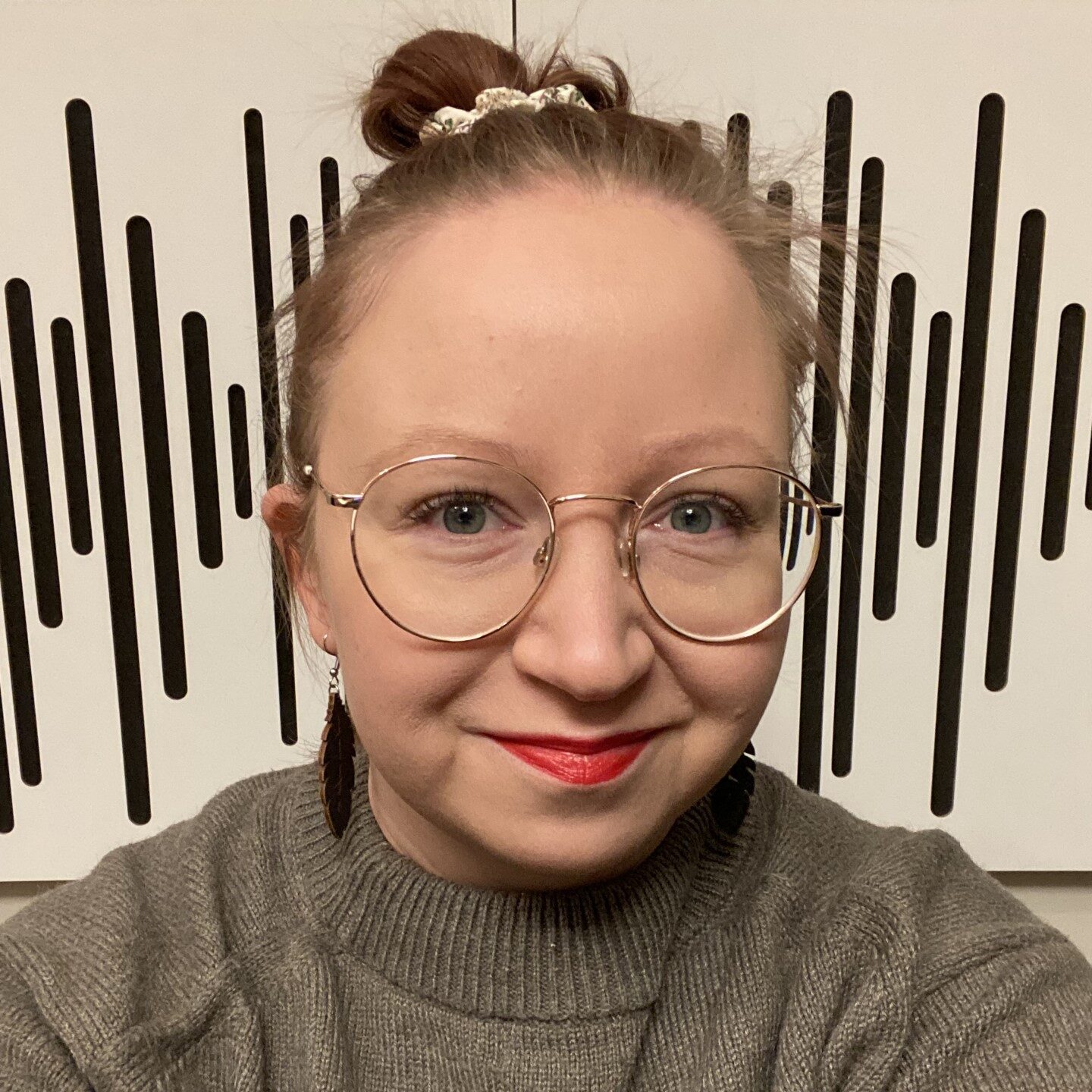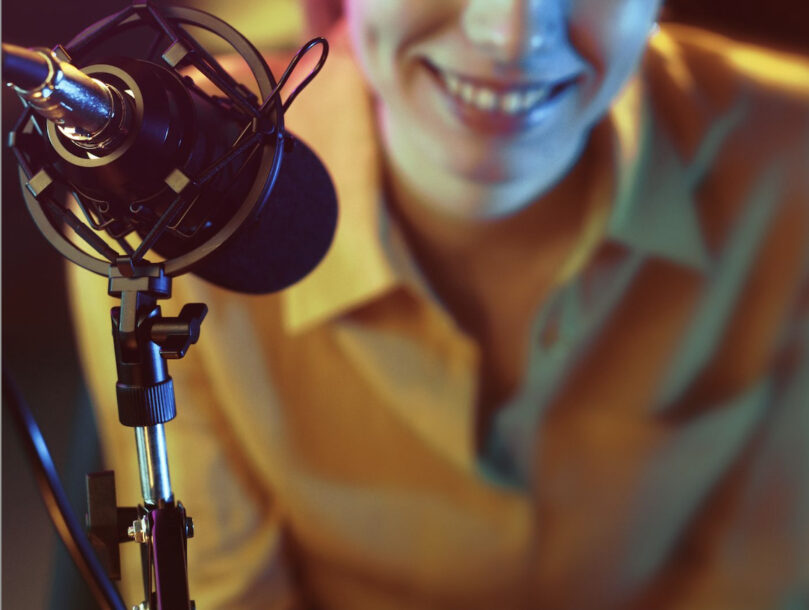Signaalimedia’s Experiences Working with Young People
Signaalimedia is culture studio for young people aged 13 to 25 run by the City of Helsinki Youth Services. Signaalimedia offers young people a chance to try their hand at producing radio shows and podcasts either independently or in collaboration with other young people. Podcast topics are usually inspired by the young people’s own interests and there are two staff members on hand to help where necessary: media producer Eevi Savolainen and youth leader Viet Tan Vuong.
Kipinä Youth Activity House, in Helsinki’s Itakeskus is home to a podcast studio young people can use – with guidance or independently – to realize their podcasting dreams. Signaalimedia’s radio production relocated to Kipinä in January 2020. Podcasting got off to a flying start when Covid-19 restrictions meant that direct radio broadcasts had to be adapted and the technical thresholds for production lowered. We acquired several RODEcaster Pro podcast production studio systems and headsets with integrated microphones that young people could borrow and use to produce content from home.
Creating a podcast starts with an idea and a need
A podcast is a talk program published via various online services. Audiences are able to listen to episodes anywhere and on any smart device. Podcast topics and genres range from true crime to current affairs and conversations covering everyday issues such as the kinds of careers that are out there and what they involve. Podcasts can be created alone or with a group. There are no restrictions on how long an episode needs to be or how frequently the podcast is released, so the series can be adapted to suit each creator’s vision. Whenever a young person interested in podcasting turns up at Kipinä or gets in touch via our Instagram, the project always begins with a blank canvas, and it is the young person’s own ideas, ambitions and opportunities that shape the development of the podcast. All of our productions, at Signaalimedia, have originated with young people and the young people themselves have been involved in the production.
The podcast is a versatile and effective communication tool when used properly. Podcasts provide a forum to discuss very general issues, but also personal and intimate topics. Our podcasts have dealt with challenging subjects such as mental health, family relationships and sexuality. Anyone can try their hand at podcasting, and you never know where a single “crazy” random idea might lead. There’s no simple recipe for creating a podcast. Inspiration may strike while you’re lying in bed, out for a run or brushing your teeth. All you need to get started is a creator and a topic that young people are interested in.
There are many motivations for creating a podcast: wanting to explore a particular topic from your own perspective and share this with other young people, wanting to learn more about an issue, to get to know the interviewees better and to entertain your listeners. Podcasts work best when listeners can relate to the topics, the host and the guests. Podcasts we usually listen to alone. They can alleviate loneliness, so the way you talk and the way you show up for your listeners can have a whole new impact on them; the topic can be completely secondary. To persuade your listeners to click on your podcast, however, and to keep coming back, your themes and topics need to resonate with what is going on in their lives.
Signaalimedia has so far produced four seasons of careers podcast Ammattipodcast. The idea for the series originated during the Covid-19 pandemic, when career-themed Living Library events were unable to run. The podcast has been a departure from our regular operations as the production determines our schedule year-round. In contrast, the podcasts produced by our young people tend to last several months to a year at most. The production of the careers podcast is led by staff memembers, but young people are involved, proposing and selecting the professions to profile each series and two young people were employed over the summer to develop and conduct interviews for the series. Young people engage with issues through their own lives, and are often keen to share their experiences, so that other young people realise they are not the only ones going through these things and there’s no need to feel alone.
Play around with ideas and test them out
There are so many podcasts being released all the time that no-one could possibly listen to them all or even find out about all of them. The more opportunities you have to listen to podcasts, try out your opening lines and segues, experiment with topics and play around with ideas, the better and stronger your final production will be. In youth work, however, it’s good to remember that sometimes a short project all wrapped up is better than a much longer work-in-progress. It’s worthwhile reaching for the stars, but it is also important to recognise what can actually be achieved with the time, technology and team available. There’s no point continuing to test indefinitely; at some point you have to trust your own vision and set out to achieve it. If you realise that an idea is not working, it’s worth changing tack immediately. It’s important to listen to the episodes yourself, but also to have others listen and ask for their feedback. This will help you develop a good sense of what works and what doesn’t.
Establish your start and end point
In their initial excitement, young people are often keen to produce dozens of episodes and several series, and many imagine themselves working on the same production for years. Right from the begining, however, it is important to set yourself two firm limits: a start and an end point. The start is important for your audiences. It helps generate interest in the show and will ideally inspire them to become regular listeners. Defining the end point is important for creators, because it makes it easy to recognise when work on the episodes and on the podcast is finished. If you do not set an endpoint for the podcast right from the start, there is a significant risk it will fall through, due to lack of interest and motivation on the part of the creators. When you start planning a podcast, it is good to think about when the first and final episodes will be released as well as how frequently the episodes will be released. This helps ensure the creators are committed to working actively on the episodes.
Podcasts can be made and released episode by episode. Alternatively, all the episodes in a series can be scripted, recorded, and edited first and then released according to the schedule you have chosen. It is also possible to produce just a single episode. A fixed release schedule provides a rhythm to the work of podcast production. Listeners too will become accustomed to the schedule and know to expect new episodes. In addition to your start and endpoint it is also important to establish a fair and explicit allocation of work within the podcasting team so that no-one finds the work too overwhelming.
It is good to keep in mind who you are creating the podcast is for and why. When your motive is clear and you know why you want to finish the job, it is easier to push through on tough days. Note down your goal and come back to themas necessary. It is also worth sharing your goals with the other members of your team, so everyone is clear about why producing and publishing this podcast is important to them. If the motivations of the team members are very different, there is a risk that the least motivated may abandon the project mid-series, leaving the more motivated to carry on alone.
Relax and jump into the recording session
Even if you don’t happen to own recording equipment worth hundreds or thousands or have the opportunity hire a professional studio, you can absolutely begin podcasting. The smart device in your pocket or your palm is a decent enough audio recorder, at least to begin with. Recording should take place in a quiet room or somewhere you can control the background noise and ambient sounds. The best room in the house is a walk-in wardrobe or bedroom. These places tend to have more textiles, which soften reverberation, which is when sounds echo off the hard surfaces of the room. You should definitely not attempt to record in a coffee shop , even though it may be a tempting option where podcast guests are concerned. In a coffee shop, there are so many elements that impact the final results, such as background music, noise, and other voices that get picked up by the microphone. These can’t really be controlled for nor can they be easily removed or reduced during editing.
You should concentrate more on your speaking technique than recording technology: speak calmly and clearly. Above all, be yourself and speak the way you would to a friend. Reading off a script, using overly formal language or being excessively polite can easily sound unnatural or pretentious. When the topic is clear, it is easy to follow. Nervousness is natural and a sign that you care about what you’re doing. Nervousness manifests in physical symptoms, such as sweaty palms, increased heart rate and shortness of breath. When you pay attention to these things and consciously calm yourself down, your output will sound better and more natural. Never be afraid of doing another take, even when you have guests.
Happy podcasting!

Author Eevi Savolainen is a media producer for City of Helsinki Youth Services.
Links in Finnish:
- Ammattipodcast – Making of (2022): https://youtu.be/HYX2PSsvnXE
- Professional podcast Making of (2022): https://youtu.be/GmWr5AWEQfw
- Signaalimediassa tuotettuja podcasteja:
- Miten podcast tuli helsinkiläiseen nuorisotyöhön?: https://open.spotify.com/episode/6J58SOw49CQAJ5RsfDJbPa?si=193cbc0915e24cad
- Podcastien hyödyntäminen nuorisotyössä: https://open.spotify.com/episode/0rqh31RQ0oXCnM1UYKrMcs?si=aa765b0481704739
- Itä kuuluu mitä kuuluu: https://open.spotify.com/show/7n5oA0uL6jHRAT5ESFEhqV?si=b84b047139a5430a
- Suomen menestynein luuseri: https://open.spotify.com/show/50SZYDxw8ymPrG0NOd54iz?si=1292bb45d1144798
- Yks juttu vielä: https://open.spotify.com/show/6ROnzuKIKSrtlt3dPeWOeJ?si=85233fcc32914a2a









